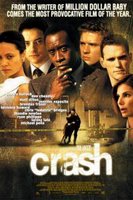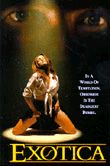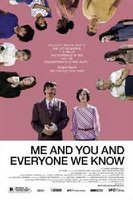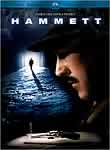 Crash (Paul Haggis, 2005) [2]
Crash (Paul Haggis, 2005) [2]
I was faced with a conundrum before watching Crash. Roger Ebert, whose opinion I admire and agree with a good majority of the time, named it his best film of 2005. On the other hand, Sicinski has called it the worst film of the year. And while I may have been too influenced by his review here, I have to agree with him. Crash is a horrible film, not in that it was poorly made, but in that it is blatantly manipulative, has preposterous coincidences that pretty much defy logic, and deals with race in generalizations. Haggis has created a fantasy land where every race gets the opportunity to experience some kind of racial bias or prejudice. It’s pretty clear that Haggis has created a system in this film where everybody can shoulder some of the blame, and make the good liberals in the audience shake their head and feel guilty. And that’s my biggest problem with the film. Haggis is so blatantly manipulative in his choices that causes me both anger and to roll my eyes back in my head. His jumps of logic in the narrative are barely believable, and some of the actions by the characters (the gun and the girl, the mother scolding her son) are so ridiculous and toy with the audience so much Haggis should be embarrassed for himself. Haggis’s biggest problem is the assumption in the film that everybody gets treated equally in regard to racism is pure fiction. But it sure makes the liberals feel good, because every one is treated equally. I’m a liberal and feel sorry for others who don’t understand that the races are not equal and that the assumptions put forth by this film are dangerous to how we regard race.
 Land of the Dead (George A. Romero, 2005) [7]
Land of the Dead (George A. Romero, 2005) [7]
Every two-bit horror film director should be forced to watch this film, yet they probably have and learned nothing from it. Well, they definitely should have learned how to make a horror film that doesn’t rely on grimy visuals and cheap scare tactics instead of a credible plot. Romero has always placed a social conscious in his films that is pretty much non-existent in the genre. This film is a sequel to his Night of the Living Dead/Dawn of the Dead series, as the zombies have now taken over just about the entire nation expect for a walled-off paradise called Fiddler’s Green. Within this setting, Romero tackles the kind of class/race stratification that is every growing under George W. The privileged get to live in the immaculate Green, while the poor live in a shanty town on the perimeter. It’s this clash that is the predominant theme throughout. The zombies have become organized to an extent and want in to the Green. The humans, led by the Dennis Hopper character, want them out. The film brings out many parallels to the current situation in Iraq (Hooper is Rumsfeld, torturing zombies/Iraqis) which makes the entire zombie vs. human, rich vs. poor situation an allegory for the current situation. Romero’s ambition certainly trumps the current horror schlock being produced.
From time to time I feel it's needed to take a break from writing just reviews and go off on a rant. This one has to deal with the abysmal cinema situation in Binghamton. As I have mentioned before, Binghamton has no "real" art house/independent theatre anymore. The one that was here, the Art Theatre, burned to the ground three years ago and the owner still hasn't rebuilt. He now operates the Art Theatre Pro-Tem, but since they don't have a projector all they can show are films that have been released on DVD. So, all this means that there is no difference between that and joining Netflix for watching any film. There are two corporate multiplexes but both play the same films, which is the major studio drivel like Hostel and Cheaper by the Dozen 2. Besides the lack of quality films, they are a haven for the annoying and tasteless teenagers that populate this county (in Binghamton, the only other option for hanging out is the mall). It's not a very good experience.
This all leads me to the issue of The New World, the new film by Terrence Malick that was supposed to be released today. Except in Binghamton that is. Regal Cinemas, owners of the largest multiplex in town, has not scheduled the film in their theatres for this week. However, the film is playing in Regal owned multiplexes in nearby Ithaca and Syracuse. This enrages me for two reasons: one is that Malick's last film, The Thin Red Line opened and played here on its initial weekend, in a multiplex. The second is that Regal (and Lowe's the other corporate trash heap) must not think Binghamton is a city that has residents of culture that deserve to see this film. These corporate scavengers want to make more money showing shit like Hostel because it will still sell more tickets than The New World would in Binghamton. But in Ithaca and Syracuse, it's o.k.
I rarely go to the theatre to see a film, but The New World was one I was greatly looking forward to seeing. And while I don't have a problem going to Ithaca or Syracuse to see it, it makes me angry that it also can't play in a 12 theatre multiplex here. Finding good cinema is hard to in Binghamton, and this is just one more thing that is making it harder. Binghamton is trying to reinvent itself as a city friendly to the arts and culture. They should start doing a better job, because they have a long way to go, especially in regards to film. At least Ithaca isn't too far away.
 Exotica (Atom Egoyan, 1994) [8]
Exotica (Atom Egoyan, 1994) [8]
On my Netflix review of this here, I said I found this film intriguing but panned it because I thought the dialogue was too philosophical and disjointed. Well, I was wrong. Dead wrong. I don’t know what it was about my first viewing (I saw it in Sicinski’s “Gaze Reconsidered” class, he wasn’t there, and I was probably thinking about sneaking out after the film was over.) but I finally got the point this time. The way Egoyan takes his time to unwind the full details of the story and to explain how the characters are all intertwined in some sort is fantastic. This creates an intricate web that allows the true nature of each character to be revealed. I’m still not sure how Freud’s concept of the gaze can really be applied to this film, but I think it has more to do with the audience’s gaze towards the film and not so much about that a lot of the film takes place in a strip club. The dialogue makes more sense in terms of how the characters interact with each other throughout, and that the nature of it is pretty much consistent throughout. I still have a little issue with the dialogue between the Sarah Polley character and the Bruce Greenwood character. But that dialogue does create a feeling that we, as the audience, are gazing and hearing some pretty heavy, personal stuff that we really shouldn’t be privy to.
 Me and You and Everyone We Know (Miranda July, 2005) [9] July’s directorial debut contains just the right amount of romantic sentimentality and subversiveness that make it highly enjoyable. I could see how some would compare this to the films of Todd Solondz. They both deal with the themes of suburban alienation, sexual dysfunction, and their relationship to children, but July injects some humanity and compassion, which Solondz has none of. Another thing that July excels doing in this film is putting the children on the same level as the adults in this film. They are not immune to the sexual and romantic questions being fought by the adults in the film. It allows an honest and funny portrayal of sexuality in young people that is rarely seen in films today. I’m not a person that cares too much for over earnest sentimentality, which would explain why I didn’t like In America or Hotel Rwanda, but it works in this film. There is just enough subversion and sly irony in the way the characters and the suburban setting are portrayed that work. It still allows the humanist qualities of the film to emerge. I also like July’s composition and camerawork. It contains enough traces of “new director” that makes the sentiment of the film more palatable than say, a similar film by Nora Ephron or Chris Columbus. All the film’s quirks definitely make it charming
Me and You and Everyone We Know (Miranda July, 2005) [9] July’s directorial debut contains just the right amount of romantic sentimentality and subversiveness that make it highly enjoyable. I could see how some would compare this to the films of Todd Solondz. They both deal with the themes of suburban alienation, sexual dysfunction, and their relationship to children, but July injects some humanity and compassion, which Solondz has none of. Another thing that July excels doing in this film is putting the children on the same level as the adults in this film. They are not immune to the sexual and romantic questions being fought by the adults in the film. It allows an honest and funny portrayal of sexuality in young people that is rarely seen in films today. I’m not a person that cares too much for over earnest sentimentality, which would explain why I didn’t like In America or Hotel Rwanda, but it works in this film. There is just enough subversion and sly irony in the way the characters and the suburban setting are portrayed that work. It still allows the humanist qualities of the film to emerge. I also like July’s composition and camerawork. It contains enough traces of “new director” that makes the sentiment of the film more palatable than say, a similar film by Nora Ephron or Chris Columbus. All the film’s quirks definitely make it charming
 My Summer of Love (Pawel Pawlikowski, 2005) [5]
My Summer of Love (Pawel Pawlikowski, 2005) [5]
How many clichés dealing with the coming of age story can we put into this film? Two girls from opposite sides of the economic and social scale that will fall in love? Check. Over articulated dialogue with unnecessary intellectual references? Check. A close-minded villain that stands in the way of the relationship? Check. An obvious ending with character development that feels forced upon? Check. This movie contains all the kinds of standards that have become the definition of a "coming of age film." Pawlikowski has made a film that gets buried beneath its execution of all those clichés. That's not to say he doesn't craft some images that really stick out in my mind, mostly involving the two girls dancing or interacting silently. It's everything that comes out of the characters' mouths that is frustrating. I knew going in to this film what to expect and from the glowing critical reviews expected some elements that pushed beyond familiar territory. Yet I was left disappointed in that there was some promise here that was never fully utilized.
 Hammett (Wim Wenders, 1982) [5]
Hammett (Wim Wenders, 1982) [5]
I wish I knew beforehand that Paramount forced Wenders to re-shoot almost the entire film and that he walked off only to have it finished by Francis Ford Coppola. It sure does explain why I thought most of the film has nothing that I would associate with Wenders’ style. The idea here is definitely interesting, positioning Dashiell Hammett as a protagonist in the kind of hard-boiled detective stories that he helped define. The problem comes in that the plot is terribly convoluted and that the first hour really crawls along. That the film has a prominent shot-on-a-soundstage look definitely doesn’t appeal to me (though it is similar to the look of Coppola films at the time, which would explain what was re-shot). The action does pick up at the end as Hammett ends up in the middle of something that could come right out of one his stories. Frederic Forrest does give a solid performance as Hammett. He’s comes across as like one of his characters, thrown into circumstances where they have to gain control over a corrupt situation. That foggy line between existing in reality and creating fiction salvages just enough of the film for me.
Since I'm someone with pretty strong opinions in film, I thought the best thing to do was create a blog where I can review the movies that I have seen lately. So if you somehow stumbled upon this site, I welcome you. But before I post, there are a couple ground rules:- Almost all the reviews on this site will be from films I receive through Netflix, which means they are ridiculously late and irrelevant. Since Binghamton has no arthouse theatre, I'm too lazy to drive to Ithaca or Syracuse, and going to the multiplex to see The Man makes me want to vomit, I'll wait for the DVD.
- These reviews are meant to be non-academic and hopefully short. But since I used to be a film student, I will occasionally use film terms and theory that make it look like I know what I'm talking about when I do not. If you want someone who can do that smartly and with some humor, check out Michael Sicinski at "The Academic Hack." He was a professor of mine a while back and he has good taste (for the most part).
- For the most part I watch only arthouse films: independent, foreign, and occasionally avant-garde (though not as much anymore). If you're looking for a review of Star Wars Episode III, watch Gene Shalit.
- All films will be graded on a scale of 1 to 10, one being lowest, ten highest.





